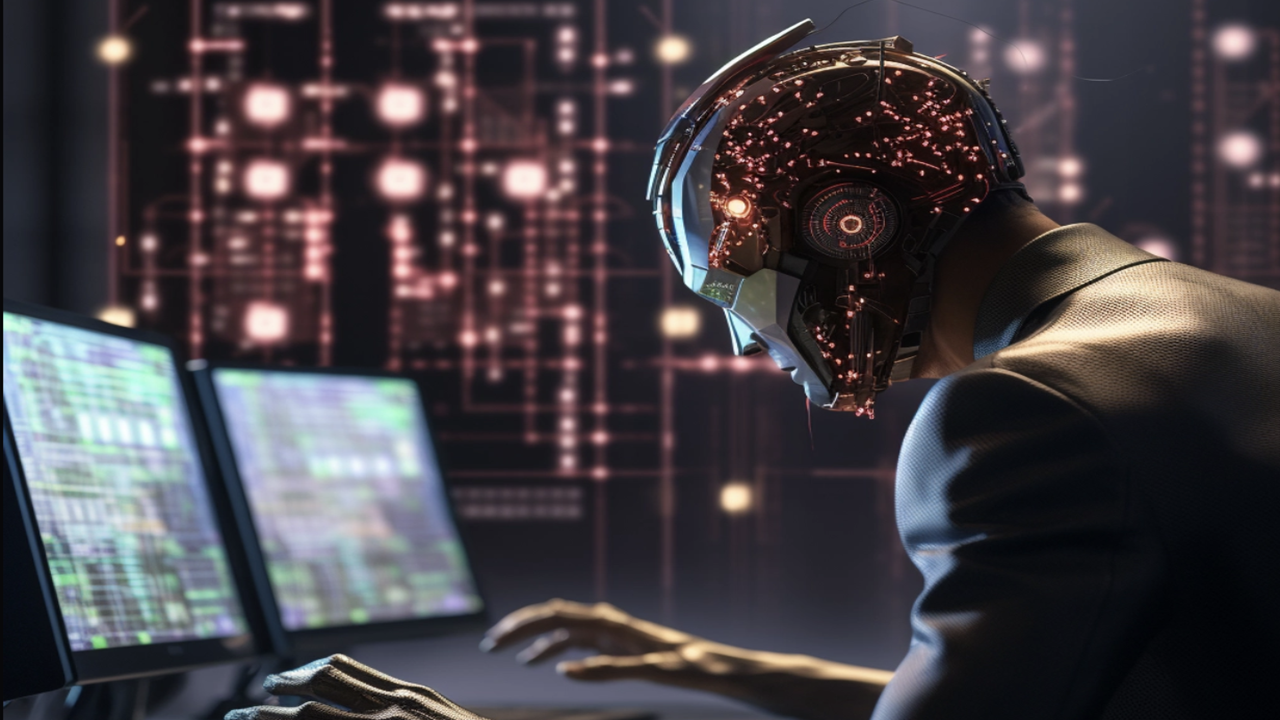A Glimpse into the Future of Programming: How AI Assistants Are Transforming the Industry
Explore the future of programming as AI assistants revolutionize the industry, streamlining workflows, enhancing collaboration, and offering personalized learning. Discover how these intelligent companions are reshaping the coding landscape, presenting new opportunities and challenges for developers.

The landscape of programming is undergoing a remarkable transformation, ushering in an era where artificial intelligence (AI) assistants are playing a pivotal role in shaping the way developers code and innovate. As technology continues to evolve at an unprecedented pace, these AI assistants are emerging as invaluable companions, streamlining workflows, enhancing productivity, and redefining the creative process within the programming realm.
The Rise of AI Assistants
Traditionally, programming has been a labor-intensive and time-consuming task, demanding intricate knowledge of languages, syntax, and algorithms. However, the advent of AI assistants is changing this narrative. These intelligent systems are designed to understand human language and assist developers in various aspects of the coding process. From generating code snippets to offering real-time suggestions and debugging assistance, AI is becoming an integral part of the programmer's toolkit.
Code Generation and Autocomplete
One of the most significant contributions of AI assistants to the programming landscape is in the realm of code generation. With the ability to analyze vast datasets of existing codebases, AI assistants can generate accurate and context-aware code snippets. This functionality not only accelerates the coding process but also reduces the likelihood of errors.
Autocomplete features powered by AI are becoming smarter and more intuitive. As developers type, these assistants predict the next lines of code, offering suggestions based on context, previous patterns, and best practices. This not only speeds up the coding process but also serves as a valuable learning tool for programmers, exposing them to efficient coding practices and patterns.
Enhanced Collaboration
AI assistants are not limited to individual developers but are also transforming collaborative efforts within programming teams. With natural language processing capabilities, these assistants can interpret and respond to queries, enabling seamless communication among team members. Collaboration tools embedded with AI facilitate efficient project management, code reviews, and knowledge sharing, ultimately enhancing the overall productivity of development teams.
Debugging and Troubleshooting
Debugging has always been a challenging and time-consuming aspect of programming. AI assistants are stepping in to alleviate this burden by offering intelligent debugging support. These assistants analyze code for errors, identify potential issues, and even propose solutions. This proactive approach not only saves time but also enhances the quality of the final code.
Additionally, AI-powered assistants can assist in troubleshooting by analyzing runtime behavior and identifying performance bottlenecks. This capability is particularly valuable in complex software systems where identifying the root cause of an issue can be a daunting task.
Personalized Learning and Skill Development
As AI assistants become more sophisticated, they evolve into personalized learning companions for developers. By analyzing individual coding patterns, strengths, and weaknesses, these assistants can recommend tailored learning resources and challenges to enhance a programmer's skill set. This adaptive learning approach accelerates professional development and ensures that developers stay abreast of the latest technologies and best practices.
Ethical Considerations
While the integration of AI assistants in programming brings about numerous benefits, it also raises ethical considerations. Developers must navigate the responsible use of AI, addressing issues such as bias in code generation, data privacy, and the potential impact on job roles within the industry. Striking a balance between leveraging AI for efficiency and ensuring ethical coding practices is a crucial aspect of the ongoing dialogue surrounding the future of programming.
Challenges and Limitations
Despite the tremendous potential of AI assistants in programming, some challenges and limitations need to be acknowledged. AI systems are not infallible and can make errors, potentially introducing bugs or security vulnerabilities. Moreover, there is a risk of overreliance, where developers may become too dependent on AI, hindering their ability to grasp fundamental concepts.
The Future Landscape
Looking ahead, the future of programming appears to be deeply intertwined with the continued evolution of AI assistants. These intelligent companions will likely become more adept at understanding complex tasks, collaborating seamlessly with developers, and contributing to the creation of innovative solutions. As the technology matures, the boundaries between human and machine collaboration in programming will blur, leading to a more symbiotic relationship where developers and AI assistants work together to tackle intricate challenges.
Conclusion
The integration of AI assistants into the programming landscape marks a paradigm shift in how software is developed. From code generation and autocomplete features to enhanced collaboration and personalized learning, these intelligent systems are reshaping the industry. As we navigate this transformative era, developers and industry stakeholders need to embrace the potential of AI assistants while addressing the ethical considerations and challenges that come with their adoption. The future of programming is undoubtedly dynamic, with AI assistants playing a central role in shaping the way we code, innovate, and build the technologies of tomorrow.










